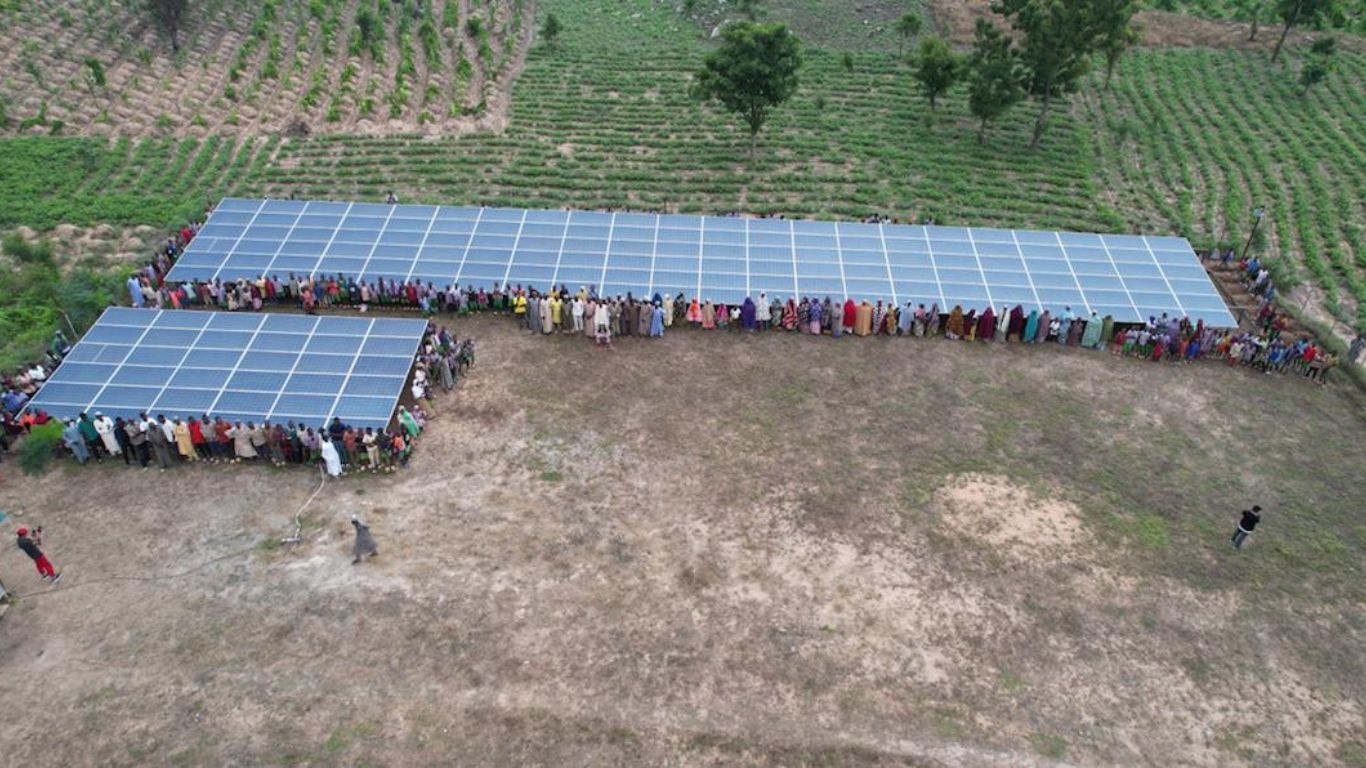Nigeria has always faced the problem of insufficient electricity. According to the 2023 Energy Progress Report by tracking SDG 7, over 80 million Nigerians, about 45% of the population lack access to electricity. Even in areas where there’s electricity, the supply is often unstable and unreliable. The country is heavily dependent on fossil fuels, with oil and gas accounting for about 90% of total energy consumption, according to a report by the World Bank. This has resulted in several challenges including lack of adequate health care due to power outages in medical facilities, slowed economic growth as businesses face disruptions and inefficiencies in their operation, social inequalities from unequal access to electricity, difficulties in communication and information access, and overall lack of development in the society.
To address this challenge, many energy providers have developed solutions to provide off-grid energy to communities in underserved and unserved communities across Nigeria. Off-grid energy solutions play a vital role in driving positive change across different areas including healthcare, business enterprise, and agriculture. Backed by generous funding from organizations like the U.S. African Development Foundation (USADF) and All On (under the United States Government-led Power Africa initiative) and with technical support from Diamond Development Initiatives (DDI), independent off-grid energy providers have been empowered to bring sustainable energy to thousands of Nigerians both for home and for productive use.
This piece discusses 5 different ways these innovative solutions contribute to sustainable development in Nigeria.
Improving Energy Access
Off-grid energy providers are bridging the gap in access to electricity, especially in remote areas where connection to the national grid is limited or non-existent. By deploying decentralized energy solutions such as solar mini-grids and standalone solar systems, these energy providers are bringing reliable power to communities that have long been underserved. They also offer a better alternative to the unstable electricity from the national grid. This has significantly improved the quality of life of thousands of Nigerians.
For example, A4&T, an independent energy company, installed a 20kW Solar mini-grid in Ugbo-Nla town, Ondo State, providing electricity for over 1,500 residents. Similarly, Solmenz, another off-grid energy provider, developed a 25kW Solar mini-grid project in the Agric Hub of Niger State, ensuring that more than 250 households have access to reliable electricity.
Encouraging Sustainable Agriculture
Access to electricity is fundamental for agricultural productivity and economic growth, as it enables smallholder farmers to modernize their operations and improve production efficiency. Many smallholder farmers face several challenges due to inadequate supply of energy. Off-grid energy providers empower smallholder farmers by providing reliable and affordable electricity access. These energy solutions enable farmers to store their harvests effectively, power irrigation systems and agricultural machinery, and facilitate value-added processing of agricultural produce. This increases farmers’ income and improves the livelihoods within agricultural communities. It also contributes to economic growth and food security.
A notable example is the installation of cold solar kiosks by GoSolar Africa in Lagos and Oyo states. This initiative helped 150 farmers reduce post-harvest losses by extending the shelf life of their perishable produce.
Encouraging Economic Growth
One of the challenges that hinder the growth of many businesses in Nigeria is the lack of consistent power supply. Off-grid energy providers are contributing to the growth of small and medium-sized enterprises (SMEs) by reducing reliance on unstable grid power and costly diesel generators. Off-grid energy solutions help businesses improve the cost and efficiency of their operation, thereby improving productivity and increasing their income. Energy providers use flexible metering systems and pay-as-you-go models that make electricity more affordable for the businesses they service.
GVE Projects Limited is one energy provider encouraging economic growth by offering sustainable and reliable energy solutions for businesses. The 1000kW solar micro-grid project being developed by GVE in Abuja is set to supply electricity to over 2,000 shops in Wuse Market, contributing to sustainable development and growth.
Improving Healthcare Services
Many hospitals and clinics in Nigeria struggle with erratic power supply, making it difficult to carry out basic medical procedures. This has led to a lot of avoidable medical complications and even death of patients. Some off-grid energy providers have made efforts to provide reliable power supply for healthcare facilities, powering medical equipment, refrigerating vaccines and medicines, and enabling essential services such as lighting, heating, and ventilation, ultimately contributing to better healthcare service delivery and improved public health.
For example, during the Covid-19 pandemic, Havenhill Synergy installed Solar systems to power two isolation centers in Oyo State. This provided an uninterrupted power supply for the centers to power equipments like monitors and refrigerators for storing vaccines.
Advancing Environmental Sustainability
With a focus on renewable energy sources such as solar and biogas, off-grid energy providers are contributing to Nigeria’s efforts to mitigate climate change and reduce greenhouse gas emissions. By promoting clean energy technologies and practices, they help to build a more sustainable energy infrastructure for future generations. An excellent example of promoting environmental sustainability is the installation of a 100kW biomass electrification project by Quintas Renewable Energy Solutions in Ofosu, Ondo State. This project made it possible for up to 230 households and 30 businesses to transition to renewable energy sources.
The contribution of off-grid energy providers to sustainable development in Nigeria cannot be overstated. Through their innovative solutions, these energy providers are not only addressing the pressing issue of energy poverty but also encouraging economic growth, empowering communities, and safeguarding the environment.
The funding from USADF, with local technical support from DDI, has supported over 60 off-grid energy projects in Nigeria with over 16,000 connections (including over 12,000 connections to low-income households and 4,000+ connections to small and medium-scale businesses). These projects have impacted thousands of lives across 21 states in Nigeria spanning the North Central, South-South, South-East, North-West and South-West regions. To learn more about these projects, check out DDI’s catalogue of off-grid projects. Visit ddinigeria.org to learn more about DDI and how you can benefit from these opportunities.
Samuel Ufomba, a Youth Corps Member, serving with Diamond Development Initiatives, writes from Abuja

